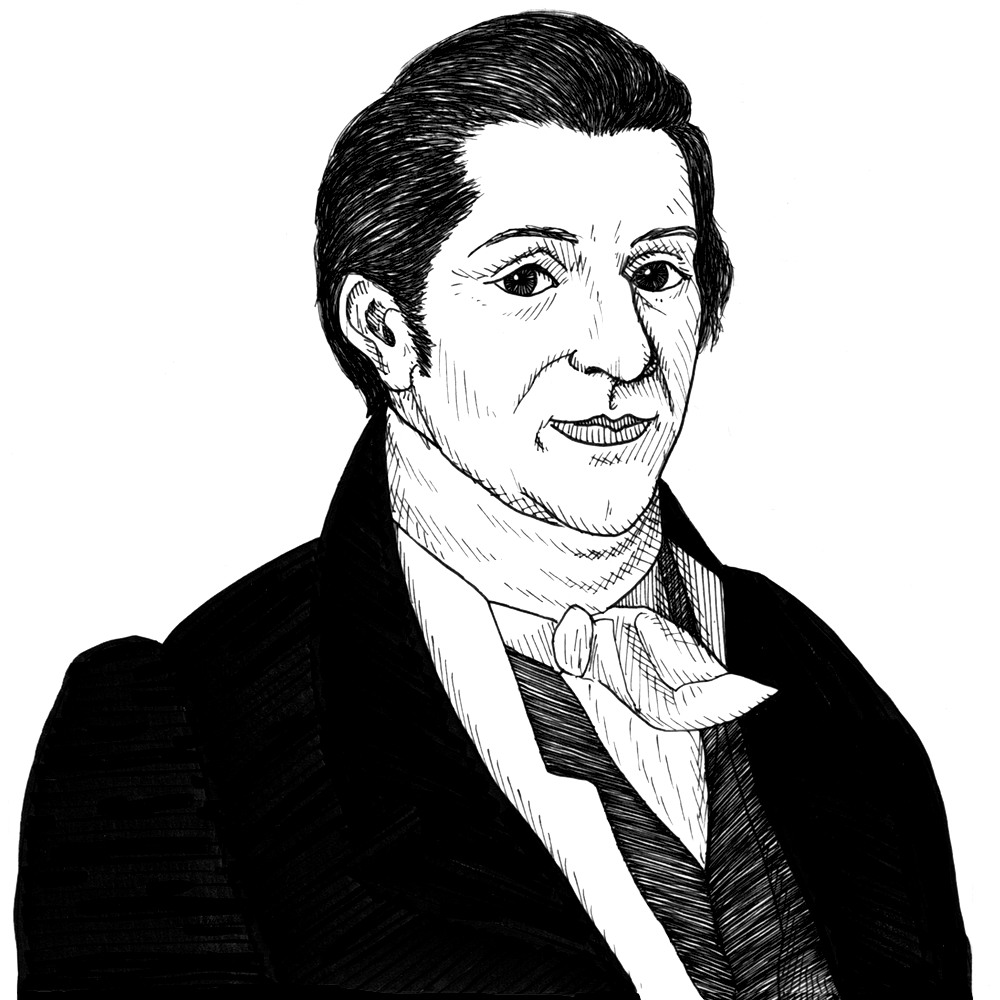
Quotes by Jean-Baptiste Say
1767 – 1832
Jean-Baptiste Say (1767-1832) was the leading French political economist in the first third of the 19th century. His major theoretical work was the Traité d’économie politique (1803) which went through many editions, revisions, and translations during his lifetime. It was very influential in the U.S. during the 19thC.
Bio
He was the originator of the theory that “supply creates its own demand” (called Say’s Law of Markets), which was Mill’s restatement of Say’s “products are paid for with products.” The idea that business booms are associated with temporary overproduction that adjusts itself because of the incentives for producers to sell their output was one implication of Say’s Law. [The image comes from “The Warren J. Samuels Portrait Collection at Duke University.”]
Colonies, Slavery & Abolition
J.B. Say argues that colonial slave labor is really quite profitable for the slave owners at the expense of the slaves and the home consumers (1817)
Property Rights
J.B. Say on the self-evident nature of property rights which is nevertheless violated by the state in taxation and slavery (1817)
Economics
Jean-Baptiste Say argues that there is a world of difference between private consumption and public consumption; an increase in the latter does nothing to increase public wealth (1803)
Colonies, Slavery & Abolition
Jean-Baptiste Say argues that home-consumers bear the brunt of the cost of maintaining overseas colonies and that they also help support the lavish lifestyles of the planter and merchant classes (1817)
Property Rights
Say on a person’s property right in their own “industrious faculties” (1819)
Free Trade
Jean-Baptiste Say regards regulations which favor producers as a form of political privilege at the expence of the community (1803)